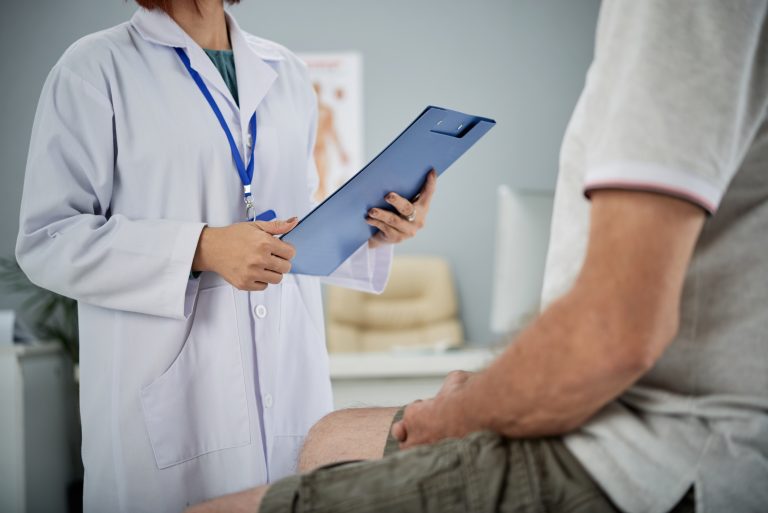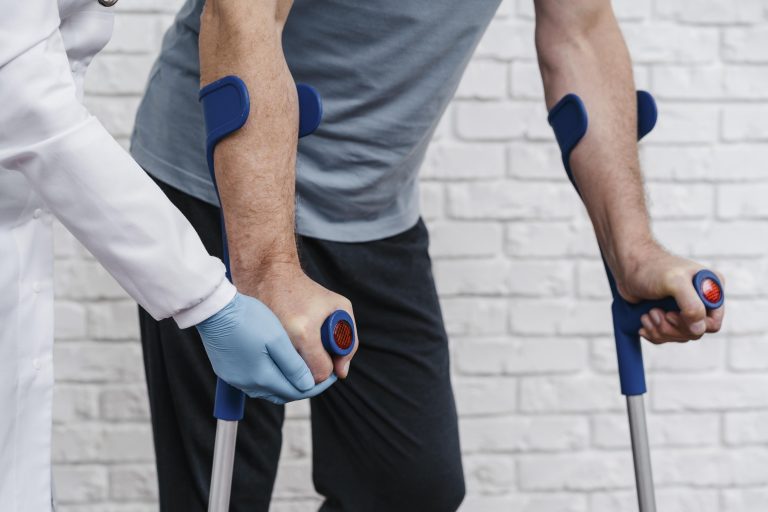Back pain is a common issue affecting millions of people, but when that pain becomes sharp, persistent, and affects mobility, it may be due to a herniated disc. If you’re experiencing severe back pain, numbness, or weakness, it’s essential to understand the causes, symptoms, and available treatments. Whether you’re in Warren, Sterling Heights, Troy, Madison Heights, or Royal Oak, Spinal Recovery Center is here to help you find relief.
What is a Herniated Disc?
Your spine is made up of vertebrae with soft, cushion-like discs in between. These discs act as shock absorbers and help with flexibility. A herniated disc, sometimes called a slipped disc or ruptured disc, occurs when the soft inner gel of a spinal disc pushes out through a tear in the outer layer. This can irritate nearby nerves and lead to pain, numbness, or weakness, usually in the lower back or neck.
Common Symptoms of a Herniated Disc
The symptoms of a herniated disc vary depending on its location and the severity of nerve compression. Some of the most common symptoms include:
1. Pain in the Lower Back or Neck
- Sharp or burning pain in the lower back, buttocks, or legs (sciatica)
- Pain radiating down one side of the body
- Neck pain that extends to the shoulders or arms
2. Numbness and Tingling
- Numbness in the arms, hands, legs, or feet
- Tingling sensations along nerve pathways
3. Weakness in Muscles
- Difficulty lifting objects
- Loss of grip strength
- Feeling of instability in the legs
If left untreated, a herniated disc can worsen, leading to chronic pain and limited mobility. Seeking professional care early can prevent long-term complications.
What Causes a Herniated Disc?
A herniated disc can happen for several reasons, and while some cases are due to sudden injuries, others develop over time due to wear and tear. Here are the main causes:
1. Aging and Degeneration
As we age, spinal discs lose their flexibility and hydration, making them more susceptible to tears and ruptures. This condition, known as degenerative disc disease, is a leading cause of herniation in adults over 40.
2. Heavy Lifting and Physical Strain
Jobs or activities that require heavy lifting, repetitive motions, or sudden twisting movements can put excess stress on the spine, leading to disc herniation.
3. Poor Posture and Sedentary Lifestyle
Sitting for long periods, especially with poor posture, can increase pressure on the spine. Desk jobs, excessive screen time, and lack of exercise can all contribute to spinal disc problems.
4. Trauma and Accidents
Car accidents, falls, or sports injuries can cause sudden impact, leading to disc damage or herniation.
5. Obesity and Excess Weight
Being overweight adds strain to the lower spine, increasing the risk of disc degeneration and herniation.
Effective Treatments for Herniated Discs
The good news is that most herniated discs can be treated without surgery. Spinal Recovery Center, serving Warren, Sterling Heights, Troy, Madison Heights, and Royal Oak, provides a range of non-invasive treatments to help you recover quickly.
1. Chiropractic Care
Chiropractic adjustments can help realign the spine, relieve nerve pressure, and reduce inflammation, promoting natural healing without medication.
2. Physical Therapy
A customized physical therapy program strengthens the core muscles, improves flexibility, and supports spinal alignment. Targeted exercises can reduce pain and prevent future injuries.
3. Spinal Decompression Therapy
This gentle, non-surgical treatment uses controlled traction to relieve pressure on the discs, helping them return to their proper position and promoting healing.
4. Massage Therapy
Therapeutic massage improves blood circulation, reduces muscle tension, and enhances mobility, providing relief from chronic pain caused by a herniated disc.
5. Pain Management Treatments
For severe cases, medications, epidural steroid injections, or nerve blocks may be recommended to manage pain while other treatments take effect.
6. Lifestyle Modifications
Patients are encouraged to maintain good posture, engage in low-impact exercises, and avoid prolonged sitting to support spinal health.
When is Surgery Necessary?
Surgery is only recommended in severe cases where other treatments fail, or if there is significant nerve compression causing loss of bowel or bladder control (a condition called cauda equina syndrome). Minimally invasive procedures like microdiscectomy can remove the damaged portion of the disc to relieve pressure on the nerves.
Get Expert Care at Spinal Recovery Center
If you are experiencing back pain, numbness, or weakness, don’t wait for symptoms to worsen. At Spinal Recovery Center, we specialize in chiropractic care, physical therapy, spinal decompression, and pain management to help you recover without surgery.
📍 Our Location:
Spinal Recovery Center – Warren, MI
📞 Contact Us:
📲 Call us at: (586) 573-8100 🌐 Visit our website: spinalrecoverycenter.com
Our team proudly serves Warren, Sterling Heights, Troy, Madison Heights, Royal Oak, and surrounding areas. Book your consultation today and take the first step toward pain relief!




